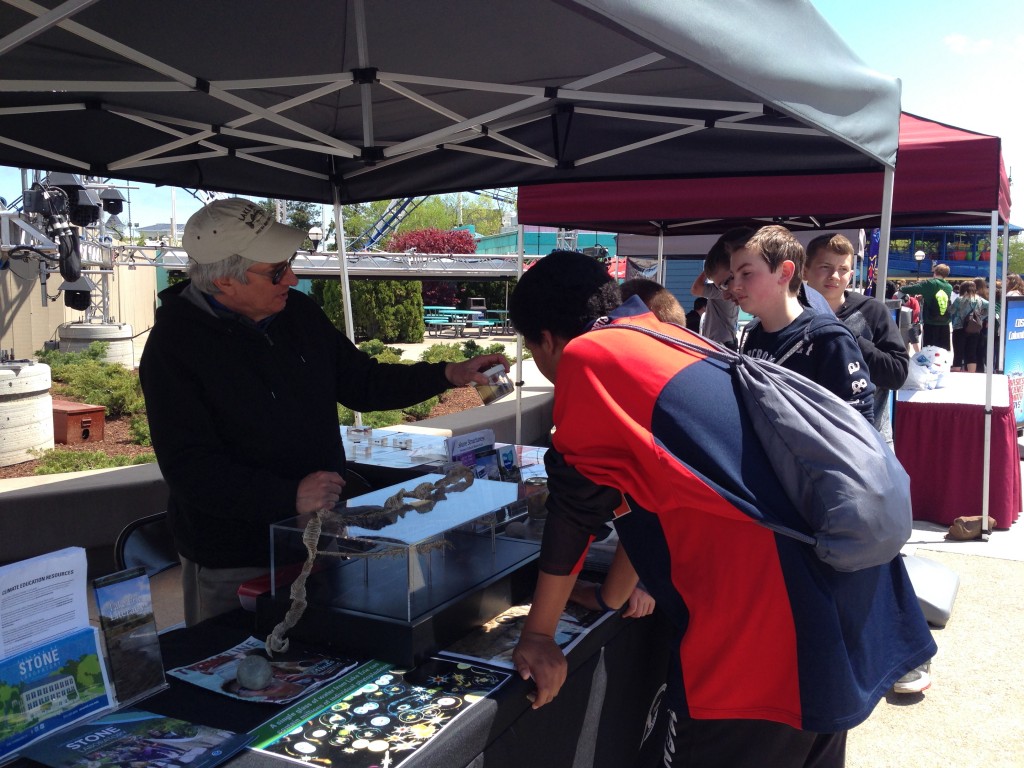In today’s world, where any question or problem can be answered by a 0.5 second Google search, it can be easy to get caught up in an information overload and difficult to separate fact from fiction. Truly now, more than ever, I argue that sources of knowledge are needed. Providing unbiased, factual information that is relevant to our stakeholders is the core mission of Ohio State University Extension and Ohio Sea Grant. This is the value and impact that an Extension program can provide.
There are often times when our opinions or foundational knowledge on a topic may be challenged – in conversations with friends, colleagues or family. During these times, I encourage you to utilize your local Extension Educator – we are here to help tackle some of the most difficult topics with factual information, to enable you to make an informed decision.
In Ohio Sea Grant, we focus our knowledge on understanding our Great Lakes water resources and the challenges that come with managing these resources. We have an uphill battle against misconceptions on everything from climate change to zebra mussels, but we fight this battle with the most valuable weapon – knowledge. Our knowledge comes from working with researchers to fully understand an issue and the science behind that issue, and our expertise is in communicating that science-based information in an easy-to-understand format through education and outreach.

Photo credit: Ohio Sea Grant
Below are just a few examples of ways to access some of Ohio Sea Grant’s science-based, unbiased sources of information:
- Sign up for Ohio Sea Grant’s e-Newsletter to receive monthly updates.
- Subscribe to the iTunes U course, Climate Impacts in the Great Lakes, for free modules on relevant climate research in the Great Lakes.
- Contact one of our Ohio Sea Grant staff with your questions.
- Participate in the Lake Erie Discussion Board, an online forum for questions about Lake Erie and the Great Lakes.
- Read some of our fact sheets on Lake Erie critical issues.
- Take a course at Stone Laboratory, we offer options for students of all ages.
- Visit us in-person at an event via our online calendar. Some upcoming events include:
- Mid-America Boat Show – January 15-19, 2015, Cleveland, OH
- Year of Clean Water Kickoff – January 23, 2015, Cleveland, OH
- Habitattitude at Greater Cleveland Aquarium – February 13-16, 2015, Cleveland, OH.
- World Water Day at Cleveland Museum of Natural History – March 21, 2015, Cleveland, OH.
- Lake Erie Day at Lake Erie Nature and Science Center – May 23, 2015, Bay Village, OH.
In 2015, I challenge you to think about where your information comes from, and, if you question its validity – to reach out to those sources of credible information, such as Ohio Sea Grant and OSU Extension, to build your knowledge around a topic. As they say, knowledge is power!
(Submitted by Sarah Orlando, Clean Marina/Limnology Outreach Coordinator, Ohio Sea Grant Program)


